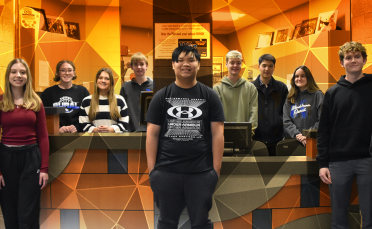Kansas Employers: Consider the Benefits of Micro-Internships

By Tim Peterson
If you’ve never heard of a micro-internship, you’re not alone. Traditional internships are usually full-time summer assignments or part-time jobs completed during the academic year, and both usually require a considerable investment of time (and often money) by an employer to ensure they’re set up and run properly.
However, micro-internships are another tool now available to help young adults get practical experience before they enter the workforce — and they can be a great way for an employer to try out a prospective new employee without making a significant financial commitment.
Micro-internships are short, paid, professional projects students or recent graduates can complete in business analytics, communications, finance, human resources, information technology, marketing, research, social media and many other areas. These projects, which can be completed remotely year-round and typically range from 10 to 40 hours of work, are designed to make life easier for employers and provide an opportunity for a young person to gain valuable experience before entering the workforce.
The Kansas Board of Regents partnered with the Kansas Department of Commerce, the DeBruce Foundation in Kansas City and Parker Dewey in Chicago in February 2021 to launch the new statewide Kansas Micro-Internships (KMI) program to connect more Kansas college students with more Kansas employers.
Micro-internships can help any Kansas business, nonprofit organization or entrepreneur in five ways:
- They provide on-demand help with short-term projects that often don’t get done due to a lack of time or staff.
- Students interested in micro-internships are easy to find, with more than 700 talented Kansas public college students already waiting to help complete your project and showcase their skills.
- These interns are easy to hire because there’s no paperwork involved. You can register and post your project online in less than 30 minutes. You set the project fee, which typically averages about $450, based on a $15 to $20 per hour pay range. Ninety percent of the project fee is paid to the student who completes your project.
- Micro-interns can expand your talent pipeline significantly, increase your workforce diversity and reduce your future hiring costs.
- The first micro-intern you hire (up to $500) is free!
Parker Dewey pioneered the concept of micro-internships more than six years ago and has helped hundreds of employers and thousands of college students connect with one another with a 98% satisfaction rate. Now, more than ever due to the pandemic, micro-internships can help address the labor shortage most employers face and help launch new and exciting careers for many more students.
The new statewide Kansas Micro-Internships (KMI) program is managed by the Kansas Board of Regents and funded by the DeBruce Foundation in Kansas City and the Kansas Department of Commerce. To learn more or to hire your first free micro-intern, visit the KMI employer page today!




